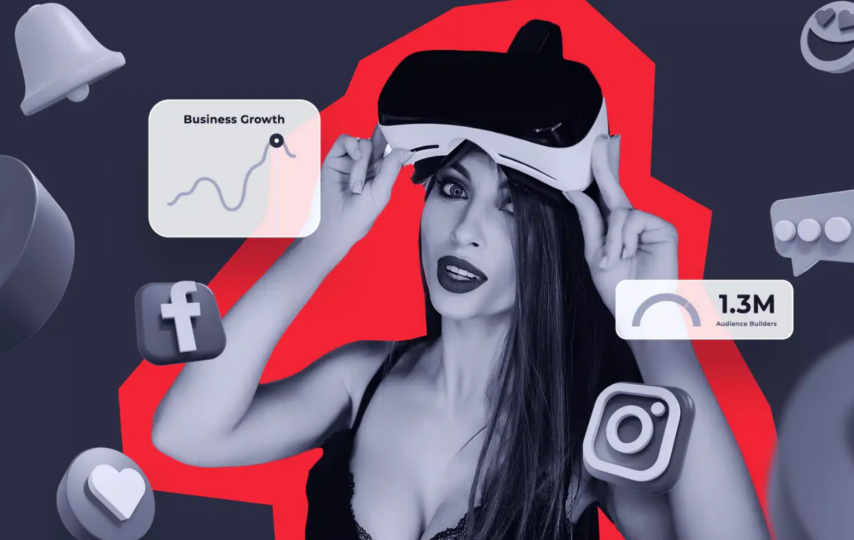Inside the chaotic, ever-shifting online rules that punish adult content—no matter how legal or ethical it is.
Despite operating legally in many countries and often following platform guidelines to the letter, adult creators and services continue to face major hurdles when trying to promote themselves online. Whether it’s cam models, independent workers, or agencies, they all run into the same problem: the internet treats them like they’re doing something wrong—even when they aren’t.
Social media platforms and advertising networks enforce vague, inconsistent policies that often target sexual content while letting far more questionable material slide. This leaves creators constantly guessing what’s “too much” and what might trigger a takedown, shadowban, or permanent suspension.
The Double Standard in Content Moderation
Across platforms like Instagram, TikTok, and even Google Ads, the lines around adult content are blurred by policy language that shifts frequently and is rarely enforced evenly. A swimsuit model and a lingerie-wearing influencer might post identical images—but if one is linked to adult services or uses certain keywords, they’re flagged instantly.
The frustration is not just about bans—it’s about visibility. Shadowbanning, in particular, makes it nearly impossible to reach new audiences. Content remains online but is suppressed in search results and feeds, making organic growth nearly impossible. Many creators and professionals in the adult space find themselves navigating a minefield of words, emojis, and poses, simply to avoid disappearing from view.
Marketing Without a Map
For many in the adult industry, traditional advertising is completely off-limits. Facebook and Google flat-out prohibit anything perceived as sexually suggestive or “adult in nature,” regardless of whether it’s legal or tastefully presented. This creates a significant disadvantage in a world where digital marketing is essential.
Even platforms that once allowed more freedom—like Reddit or Twitter—are tightening their policies. The result? Adult creators rely on coded language, alternative platforms, and outdated forums to promote themselves. It’s a patchwork approach, and it doesn’t always work.
In Greece, where sex work is legal and regulated, the same barriers apply. Even services operating within the law are forced into digital back alleys. Platforms like www.skokka.gr have become crucial alternatives, offering a place for adult providers to advertise safely and openly. But outside of niche directories, mainstream digital visibility remains a challenge.
Luxury, Legitimacy, and Digital Erasure
What’s even more complicated is that these restrictions affect everyone in the adult industry—even at the high end. Luxury services and professionals who operate discreetly, ethically, and with clear boundaries are lumped into the same category as spam or explicit content violations.
A vip escort working through a reputable agency may follow every guideline possible: no nudity, professional photos, and respectful language. But the association with adult work is enough to get content removed or accounts flagged. In the eyes of the algorithm, context doesn’t matter. It’s about keywords, and unfortunately, those are often all it takes to get silenced.
This creates a stigma-by-default, where even those operating within legal frameworks are treated as outsiders in the digital space. And because the penalties are automated, there’s little room for appeal or explanation.
Local Scenes, Global Problems
The issue isn’t just about global platforms—it hits local businesses and professionals just as hard. In Greece, where tourism plays a massive role in many regional economies, visibility matters. On islands like Rhodes, known for their blend of ancient history, upscale resorts, and lively nightlife, there’s also a discreet, well-established adult scene. Escorts in Rhodes cater to a diverse, international clientele, often presenting their services with professionalism and polish. Yet, despite operating legally and ethically, they still face the same digital roadblocks—content restrictions, ad bans, and algorithmic suppression that make online promotion an uphill battle.
Workarounds, Risks, and the Need for Change
Because of these restrictions, adult creators and services are forced into using workarounds—coded hashtags, link-in-bio redirects, blurred images. But these tactics are not sustainable, and they come with risks. Accounts get deleted. Content is misinterpreted. Livelihoods are disrupted.
What the industry needs is clarity. Clearer guidelines, fairer moderation, and equal treatment across categories. There’s a difference between exploitation and empowerment. There’s a difference between spam and legitimate services. But until platforms acknowledge those differences, adult creators and professionals will continue operating in the shadows of a system that won’t give them a voice.
For now, the adult industry continues to innovate its own spaces—platforms like Skokka, niche networks, and direct communication channels. But being locked out of mainstream visibility remains a major barrier. It’s not about asking for special treatment. It’s about asking to be treated like everyone else.








